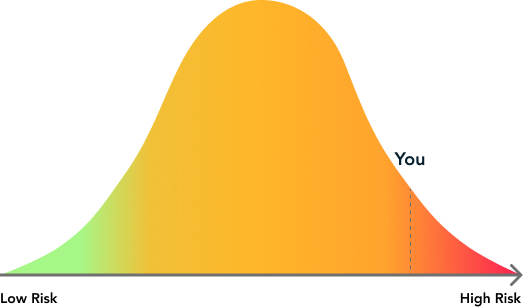Has your heart health been top of mind lately? 17.9 million people die each year of cardiovascular diseases (otherwise known as heart diseases), making them the most common cause of death globally. Even seemingly fit and healthy people aren’t immune to heart attacks and strokes, which has left a lot of us in middle age to face our own mortality and ask “Could this happen to me too?”
The genes you inherited play a meaningful role in your risk for cardiovascular diseases, so answering this question is actually possible.
This is something that we at myDNA have been interested in for a long time, because good health starts with your heart. The Heart Health insights in the myDNA Unlocked app already report on genes that affect how the body regulates harmful triglyceride levels, balance the different lipid levels in the blood and break them down more or less easily.
More recently we’ve been working on developing a new polygenic risk report for heart health issues that can take this further and give our members a risk score for the following:
So what is polygenic risk?
A polygenic risk score is calculated by comparing the genomes of individuals with and without a disease. A person’s statistical relative risk for a disease (so, the likelihood that you can get a certain disease in relation to the rest of the population) is then calculated and a polygenic risk score is produced.
If you think of it as a bell curve, most people will find their scores in the middle (50%), giving them an average risk of a disease. Those with scores at the tail ends have either low risk or high risk for a disease.
Knowledge is power. So if you discover your polygenic risk score is high, you can benefit from discussing this risk with a physician or genetic counselor.
In fact, changes like improving your diet and physical activity levels, plus reducing or eliminating smoking, alcohol use and stress levels can all be life-saving when it comes to your heart health. This is where the wellness plans on the myDNA Unlocked app will help our members reduce their polygenic risk for heart health issues.
It’s yet another opportunity to provide our members with information about their unique bodies that will help them live a more personalized and healthy life. We’re so excited that we’re going to fast-track our product development and hope to be able to provide polygenic risk scores for heart health issues in about six months.
So the answer to the question “Could this happen to me too?” is not too far away. Stay tuned for more developments and updates about this exciting new report from myDNA.


